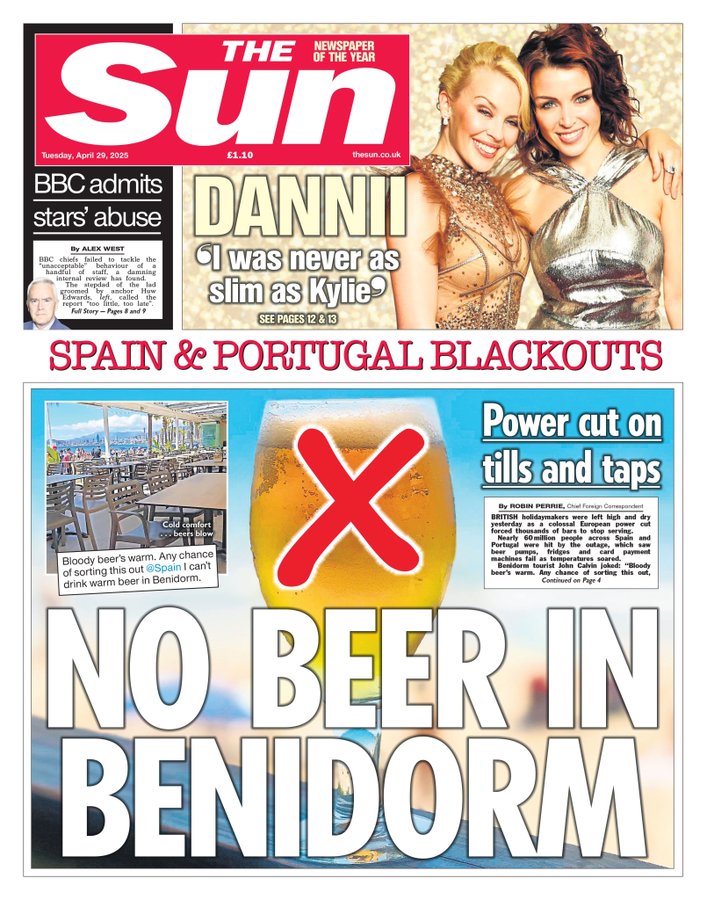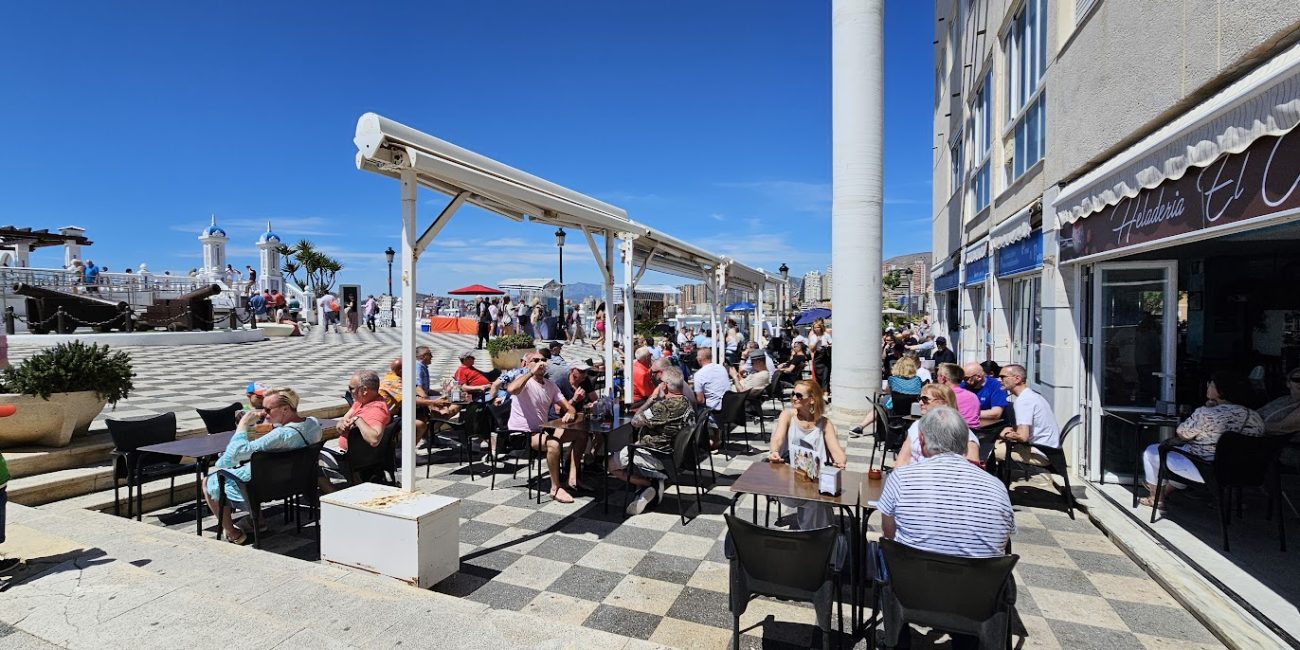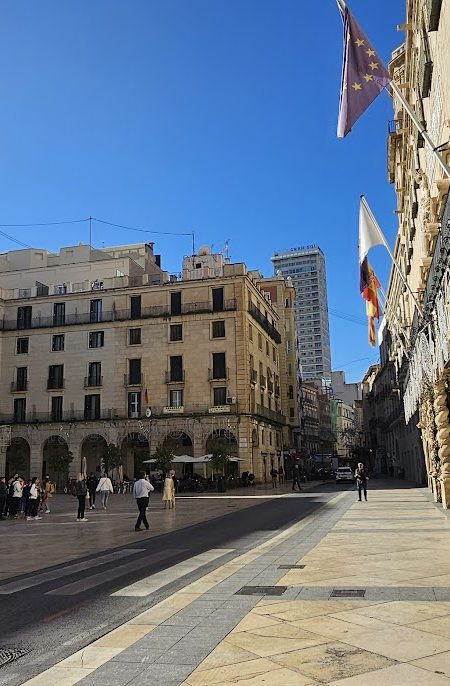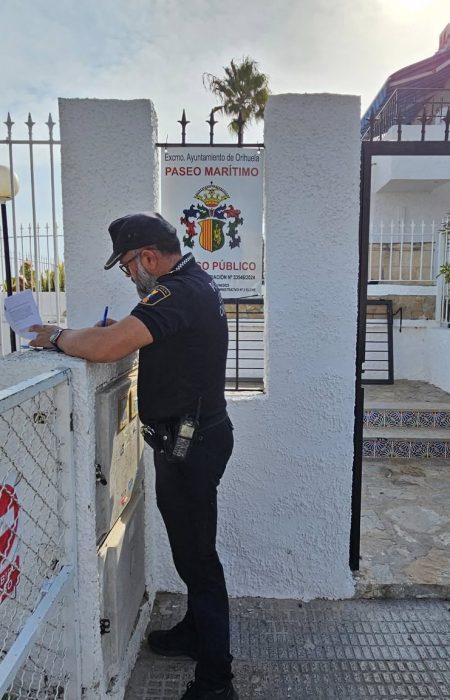The attempt to discredit Benidorm remains a constant. The summer season is just getting started, and the British boards decide that something is happening in Benidorm that would damage their compatriots’ vacations. However, this endeavour to tarnish the reputation of Britain’s most popular tourist attractions has been ongoing for nearly a year. The most recent effort occurred a few days ago, when it was announced that the City Council had imposed new fines of up to 500 euros for tourists who violated the well-known “scooters.” But there was none of that, just a hodgepodge of numerous news reports, the most crucial of which was that Benidorm was in the headlines, as well as an almost essential ingredient for these tourists: electric wheelchairs.
History repeats itself: fake security alerts, a blackout that deprives UK visitors of cold beer… and, farther back, fake sharks, deadly insect bites, or the installation of air conditioning at 27 degrees that “roasted” tourists. These are just a few of the headlines that British tabloids, such as The Sun and Mirror, try to raise alarms with sensationalist stories that only serve to undermine the city.
Benidorm “sells” in every way, including enticing readers by using its name in a headline, even if the news it covers is happening on the other side of Spain or not at all. But there could be another, more business-like undertone: launching these messages to persuade Britons to stay in their own country, vacationing on southern beaches like Bournemouth or Brighton, as they did during the pandemic, or to choose other competing destinations such as Egypt or Turkey. However, it could simply be a way to increase newspaper sales or digital media traffic.
However, the attempt failed. In other words, propagating false news no longer resonates with the British. And this is supported not only by the city’s tourism industry, but also by statistics: an increasing number of British tourists choose Benidorm for their annual vacation. Furthermore, many of them remain devoted to the city, returning year after year.
Fifty percent of British tourists
The fact is clear: nearly half of Benidorm’s visitors are from this country. According to the most recent figures from the hotel organisation Hosbec, the British market accounted for 49.8% of all tourists who stayed at hotels in May. According to Benidorm City Council figures, they made up an average of 45% of overnight stays in 2024, totalling 900,000 travellers.
There is more. Home sales to British citizens have been steadily increasing recently. According to data provided by the Valencia Notary Association, the British buyer’s market witnessed 3,545 house purchases in the province, with Benidorm being one of the most popular locations, with 65 transactions totalling €176,000 on average.
Another fact: flights to Alicante-Elche Airport. According to Aena data, international traffic climbed by 7.5% in May, with 1,624,664 registered passengers. Passengers from the United Kingdom accounted for 637,443 travellers, with domestic traffic at 224,623. More than 160,000 people travelled that month via connections to Manchester and London’s Gatwick terminal. The movement continues to expand.
“The data shows us that these stories do not resonate with British tourists,” said Leire Bilbao, manager of Visit Benidorm, the city’s tourism development organisation. “More and more travellers are coming from the United Kingdom, so the messages aren’t affected; there’s more and more spending in the city,” said the woman. And why do the tabloids continue to publish them? Bilbao clarifies thaThe tabloids frequently publish news stories featuring Benidorm in their headlines because people read them.
Fede Fuster, president of the Hotel Association Hosbec, said that the tourist industry “pays the same attention to these news stories as most readers.” In other words, they give them little weight because they are merely meant to attract “clicks” rather than readers: “We find it almost funny,” he continued. He also confirmed that “this year will again be a record year, particularly for British tourism.”
However, he explained that, “since social media has exploded on the scene, the information released by these types of tabloids has little credibility.” Those who desire to visit Benidorm rely more on the firsthand accounts of others who know the area and are committed to the destination.”
The news is overblown
Reading some of the sensationalist British news stories demonstrates how contradictory the information is. This is the situation with the previously cited report on electric scooters.
The news, which was real and published in Benidorm, was that the City Council was planning to step up enforcement of scooter riders transporting goods, which is prohibited by regulations. Fines might be up to 80 euros. It was also mentioned that the Mobility ordinance includes fines of up to 500 euros for scooter users who do not comply with safety measures such as wearing a helmet or having insurance.
However, the Mirror newspaper decided to report its own tale. It utilised a term commonly used by Britons in Benidorm—”scooters”—to denote the imposition of new 500-euro fines for people who ride them and incur breaches. The way it was reported made it seem like a new ordinance.

This is only one example: “British flee Benidorm beach after huge killer shark spotted just metres from shore.” This headline was among the most popular, although there was no shark. Another example: when the central government proposed setting air conditioning temperatures to 27 degrees, The Sun headlined: “British tourists to Spain will be roasted.” The lack of safety has also dominated the pages of tabloids.
Among the most recent headlines was one about the day of the blackout in Spain, where The Sun’s headline was not about the chaos that was experienced throughout the country or the consequences, but rather, with a big headline on the front page and in bold letters, the problem was “NO BEER IN BENIDORM” accompanied by a tragic red cross marking a glass of beer.

Bilbao noted that this is one of the instances where a national incident is centred on Benidorm. That is, the tabloid only links something that happened across the country to a certain destination, one to which the majority of British visitors fly.
Go against it?
But can these stories be debunked? The director of Visit Benidorm stated that the efforts to counterbalance the minimal influence they may have required additional effort: “We continue with a parallel effort, which is to explain what the destination is like and everything it offers.” Like this one: “we respond truthfully to the media and share all the real facts.” One of the most recent examples is a piece published in The Guardian titled “Forget the stereotypes, Benidorm is the complete package.” It goes beyond sensationalism to explain the genuine facts and the entirety of the city’s offerings.
The tourism industry, which includes tour operators who cater to British tourists, is apparently unconcerned by the news. The loyalty of UK visitors to Benidorm is almost unbreakable, and word of mouth travels mountains. “What’s really worrying are the news stories that convey ‘anti-tourism’ messages in Spain,” according to Bilbao.
Benidorm’s tourist numbers will continue to rise, and Britons will continue to choose it as one of their preferred holiday locations, regardless of the time of year. Meanwhile, sensationalist tabloids will continue to “play” with the city’s name in their news stories, despite their fruitless efforts to kill British travellers’ “passion” for the country.









No Comment! Be the first one.